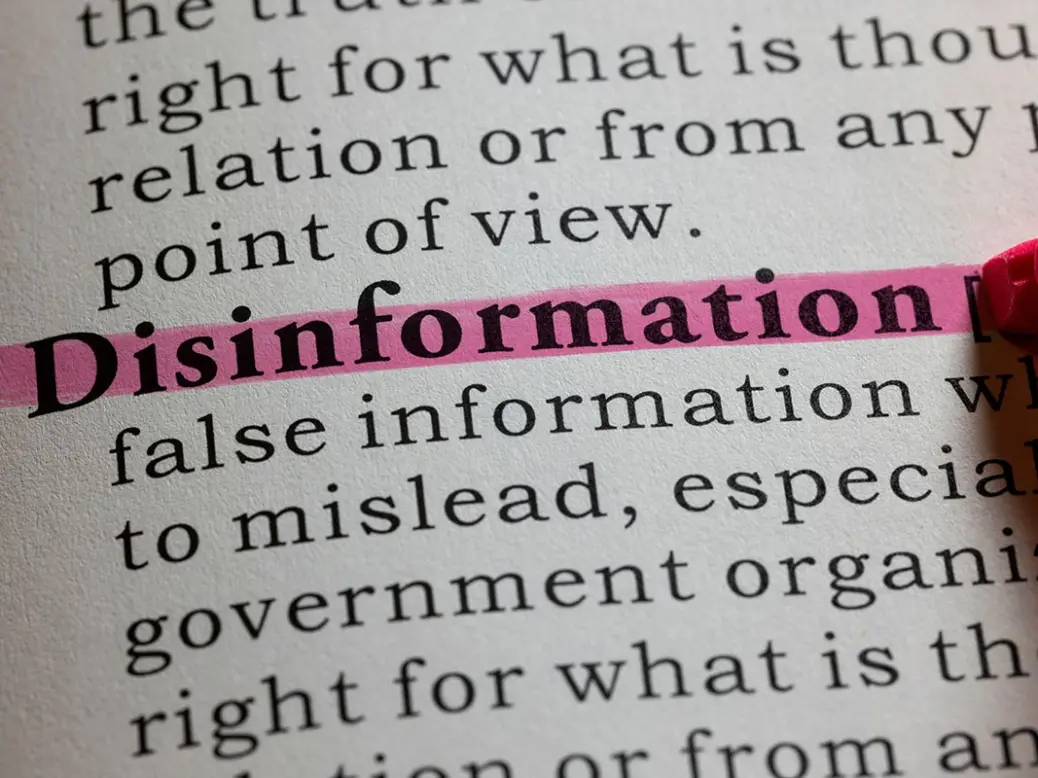
Advisers to high-net-worth individuals have renewed calls for more stringent online security measures as the threat of misinformation and disinformation is named as a bigger short-term risk to global society than extreme weather events.
That’s the damning assessment of the Global Risks Report 2024, a joint venture between Zurich and the World Economic Forum, which has been released to coincide with the Davos conference this week.
[See also: Is this the death of Davos?]
The report has polled 1,500 global risk experts on the challenges facing societies. While extreme weather was named the greatest risk for 2024, with two-thirds of respondents naming it as a threat, it will be overtaken by the challenge of disinformation and misinformation by 2026. (Misinformation is the proliferation of misconstrued facts without malice, while disinformation is driven by nefarious actors).
The report highlights fears that foreign and domestic actors will ‘leverage misinformation and disinformation to further widen societal and political divides’, which could lead to civil unrest and undermine elections.
Evolving tech poses greater risk for ‘complacent’ HNWs
Such threats are of particular concern to high-net-worth individuals, who are more likely to find themselves in the public eye and therefore more exposed, even if they do not have an online presence. Advisers have stepped up calls for HNWs – even those without an overtly public profile – to engage in regular online health-checks to secure their digital footprint.
[See also: What to expect from Davos 2024]
Antonia Foster, a reputation and privacy lawyer and partner at Carter-Ruck, tells Spear’s that while ‘HNWs are better placed to have the legal advisers to stamp out’ spurious online reports about their affairs ‘quite quickly,’ many are inexperienced with dealing with disinformation and can be ‘scrambling quickly to assemble a team that can try and stop it’ when bad actors do start disseminating mistruths.
The complacency of the super-wealthy over online threats is echoed by SEC Newgate’s Tom Flynn, a specialist who heads the agency’s efforts to help clients curate their digital footprints and keep online truth-twisters at bay.
[See also: Are UHNW families too discreet for their own good?]
The adviser has form when it comes to routing out and stamping out disinformation — he worked on Hilary Clinton’s US election campaign in 2016 and saw the proliferation of spurious online news articles and bot-generated social media posts about the election first-hand. ‘But the big difference this time,’ Flynn says, ‘is the ease’ at which even low-level fraudsters can create deepfakes and bot-networks to spread disinformation.
Flynn’s fears over the risks of political interference chime with the assessment of the WEF’s report, which says that as nearly three billion people head to the polls over the next couple of years, ‘the widespread use of misinformation and disinformation, and tools to disseminate it, may undermine the legitimacy of newly elected governments.’
Deepfakes, disinformation and the danger of digital foes

‘Synthetic content’, more commonly known as deepfakes, is identified by the Global Risk Report 2024 as a key area of concern.
‘It’s staggering,’ Flynn says of the pace at which technological tools allowing the production of deepfakes are becoming widespread. He points to new tools which allow him to get access to AI-generated audio files of himself speaking in ‘perfect French, Chinese, or even lip-syncing within minutes’. He adds that tech, such as image-generation software, has grown in quality and believability ‘exponentially’ over the last year or two.
In the wrong hands, such technology can have dire consequences. For example, a deepfake video of a CEO could be used to manipulate share prices. ‘Even a minor movement in a share price can make someone a lot of money somewhere,’ Flynn warns.
[See also: How should UHNWs protect against the risks of AI?]
At Carter-Ruck, Foster says she has dealt with one client where ‘quite compelling evidence’ has been produced that a damaging article is being pushed ‘extremely hard’ further up Google’s search results — with bots driven by ‘a group of people who have been actively trying to do [them] down’.
‘More commonly, we are dealing with a disgruntled ex-employee who has leaked something into the ether, and that has garnered its own oxygen,’ Foster says. But while the threats posed by digital foes can be alarming, misinformation is also ‘pernicious’ online.
Although some HNWs might be ‘proud’ to keep a low-profile online, this doesn’t alleviate the risk of being the victim of disinformation or misinformation. In fact, it might heighten it.
‘It’s quite common, especially for ultra-high-net-worths, to be quite proud of [the fact] they’re not online,’ Flynn says. ‘No social media, often no bios on company websites. They’re kind of mysterious, and in the background.’
A bad trip: the dark side of AI hallucinations
He continues: ’[The issue is] AI chat bots are vulnerable to what’s called hallucination. They are trying to be helpful, but they are better at creativity than they are at accuracy. So, when you ask a question about a high-net-worth, the chatbot searches the internet to find out information about them. Now, where your own sources don’t exist, they are either using what someone else says about you, or they are hallucinating.
‘And what someone else says about you may not be true. So the need to do proper online audits of what is said about you, and what is on page one of search engines, is more important than it’s ever been.’
Hallucination by AI chatbots has led to more than just ‘minor errors’. Flynn says that Google’s Bard software had mentioned two ‘fabricated TV documentaries’ about his client – ‘it made up the names of two documentaries that linked them to [organised crime]’.
[See also: The best reputation and privacy lawyers for high-net-worth individuals in 2023]
In another case, one of Flynn’s clients had owned an organisation where an employee had been fired for links to organised crime, and a chatbot ‘missed out the middle and linked the two,’ he says.
‘I had a chatbot tell me that there was a report about my client by an international crime agency naming him as a drug kingpin. When I asked for it, it said it was classified.’
Chatbots have also wrongly said his clients have been ‘sanctioned by the US government’ or are ‘responsible for workplace deaths,’ Flynn laments.
‘Whoever is looking at this for you needs to be examining what is said about you on AI chatbots right now. And they need to be doing prompted and unprompted searches,’ he warns.
HNWs should also act quickly when releasing public statements about their affairs when lies spread — which can then be given over to mainstream media outlets to correct harmful falsehoods. Foster adds: ‘’You get a team together quickly, and you find out the answers to the questions that the misinformation has posed.’







